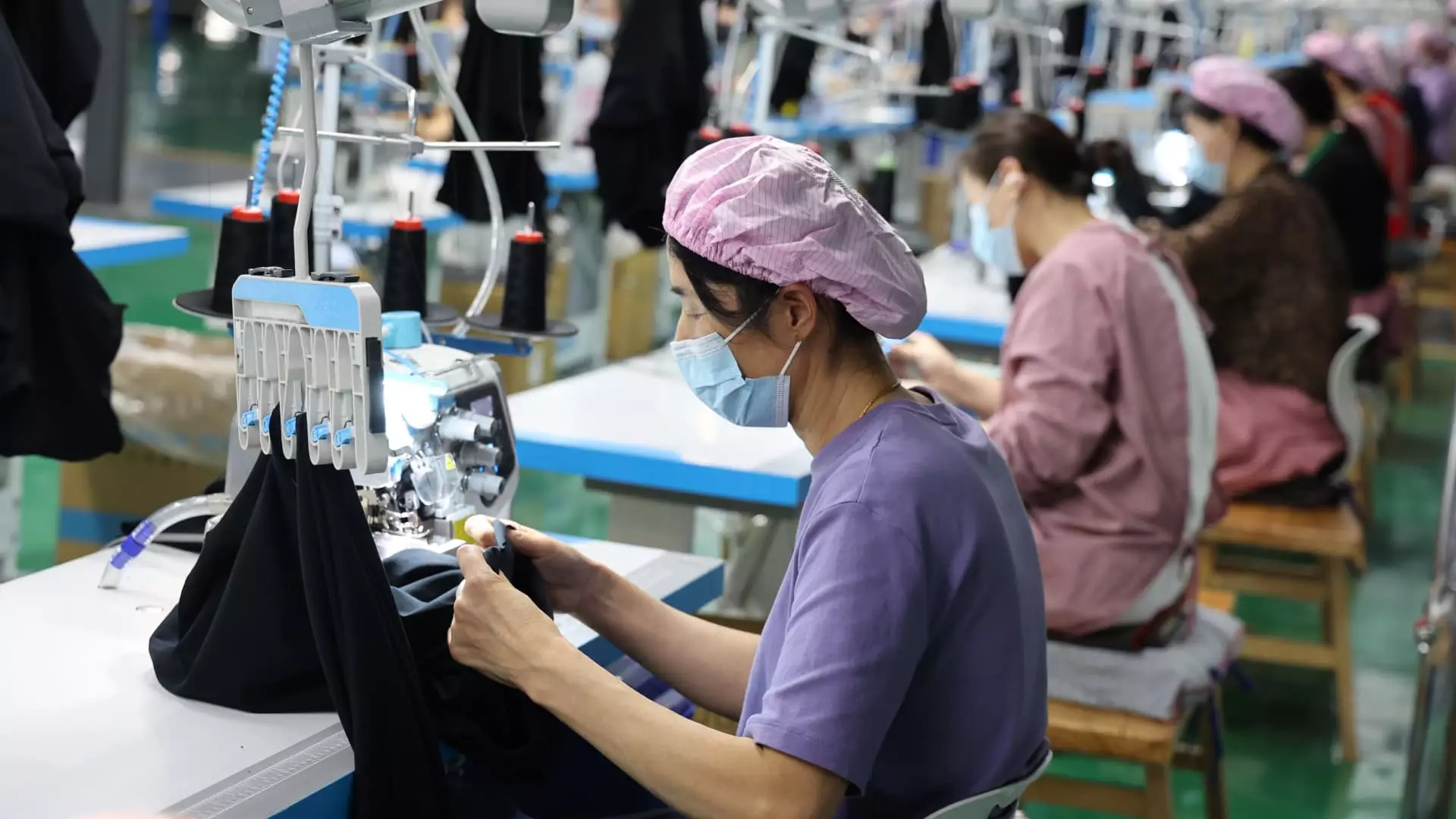In a landscape marked by uncertainty, China’s manufacturing sector stands at a crucial crossroads. A recent wave of U.S. tariffs has resulted in an unsettling pause in production for many manufacturers, particularly those reliant on exports to the United States. Estimates suggest that between 10 to 20 million workers have found themselves at the mercy of these economic headwinds, creating palpable anxiety across key manufacturing hubs like Yiwu and Dongguan. The looming question: how sustainable are these production freezes, and what does it mean for the future of employment and economic stability in China?
Senior partner at Tidalwave Solutions, Cameron Johnson, encapsulated the somber mood of the industry when he stated that many factories have instructed half of their workforce to go home amidst dwindling orders. Although the situation is still developing, the fear is that this ripple effect could escalate into a more profound crisis if tariffs remain unchanged. For a country whose economy is intricately woven into the fabric of global trade, the impacts of these tariffs could be catastrophic.
Amid Turmoil: Small Enterprises Under Siege
The reality is stark for small businesses, particularly those with limited financial cushions. Ash Monga, founder and CEO of Guangzhou-based Imex Sourcing Services, suggests that the sudden spike in tariffs could obliterate many small companies struggling to navigate the terrain. By his assessment, the impact of these tariffs eclipses even the detrimental effects faced during the COVID-19 pandemic. The fear of operational paralysis looms large as businesses grapple with the challenge of sustaining cash flow while adjusting to the relentless constraints imposed by this economic environment.
Amidst this struggle, some companies are taking creative approaches to reposition themselves. For instance, Woodswool, a manufacturer of athletic wear, has opted to pivot towards domestic markets through innovative sales channels such as livestreaming. This shift indicates a robust adaptability, as businesses strive to salvage lost revenue streams. However, this new strategy may only be a band-aid solution, as many companies report that previously secured U.S. contracts have been outright canceled, leading to concerns about whether such adaptations can buffer against the full financial fallout.
The Illusion of Domestic Resilience
In light of these challenges, Chinese manufacturers are attempting to orient their models towards domestic consumers. Giants like Baidu and JD.com are stepping in to provide support and infrastructure to facilitate this transition. Yet the assistance they offer pales in comparison to the colossal scale of suffering facing the manufacturing sector. With Baidu promising AI tools and Dixon committing to a massive capital injection to boost domestic sales, there remains a nagging skepticism that these measures can genuinely offset the economic trauma inflicted by the tariffs.
The optimism surrounding domestic e-commerce growth could be misleading, as Ashley Dudarenok, founder of ChoZan, has observed that Chinese manufacturers are becoming increasingly fatigued by the notion of shifting their consumer base. For many, the conditions necessary to sell effectively to the domestic market remain elusive and require a tailored approach that many lack the resources to pursue. Furthermore, diversifying production routes to places like India or Southeast Asia exposes companies to additional complications, including fluctuating shipping costs and the logistics of building new networks.
The Broader Implications of a Shifting Global Economy
The pivot away from U.S. exports signals a potentially seismic shift in global trade dynamics. As Liu Xu of Beijing Mingyuchu shares, businesses are already diversifying operations towards markets in places like Brazil, which has seen exponential growth in its import activity from China. Despite the inherent risks that come with such a transition, companies are displaying an increasing willingness to explore new partnerships, yet this raises serious questions about the sustainability of these new routes given geopolitical tensions.
The emergence of companies like Cotrie Logistics—founded on the need for reliable supply chains due to U.S.-China tensions—serves as a testament to the current state of flux in international commerce. However, it also lays bare a more profound question about the future: can businesses successfully adapt while facing lingering economic uncertainties?
This should compel stakeholders to address the core issues at play, as the ramifications of these trade policies extend far beyond the immediate operations of Chinese manufacturers. As 10 million workers stare down the barrel of hardship, the world must grapple with the consequences of political machinations on everyday lives. The urgent need for dialogue and cooperation has never been clearer.

Leave a Reply